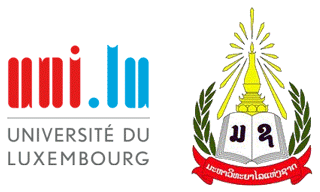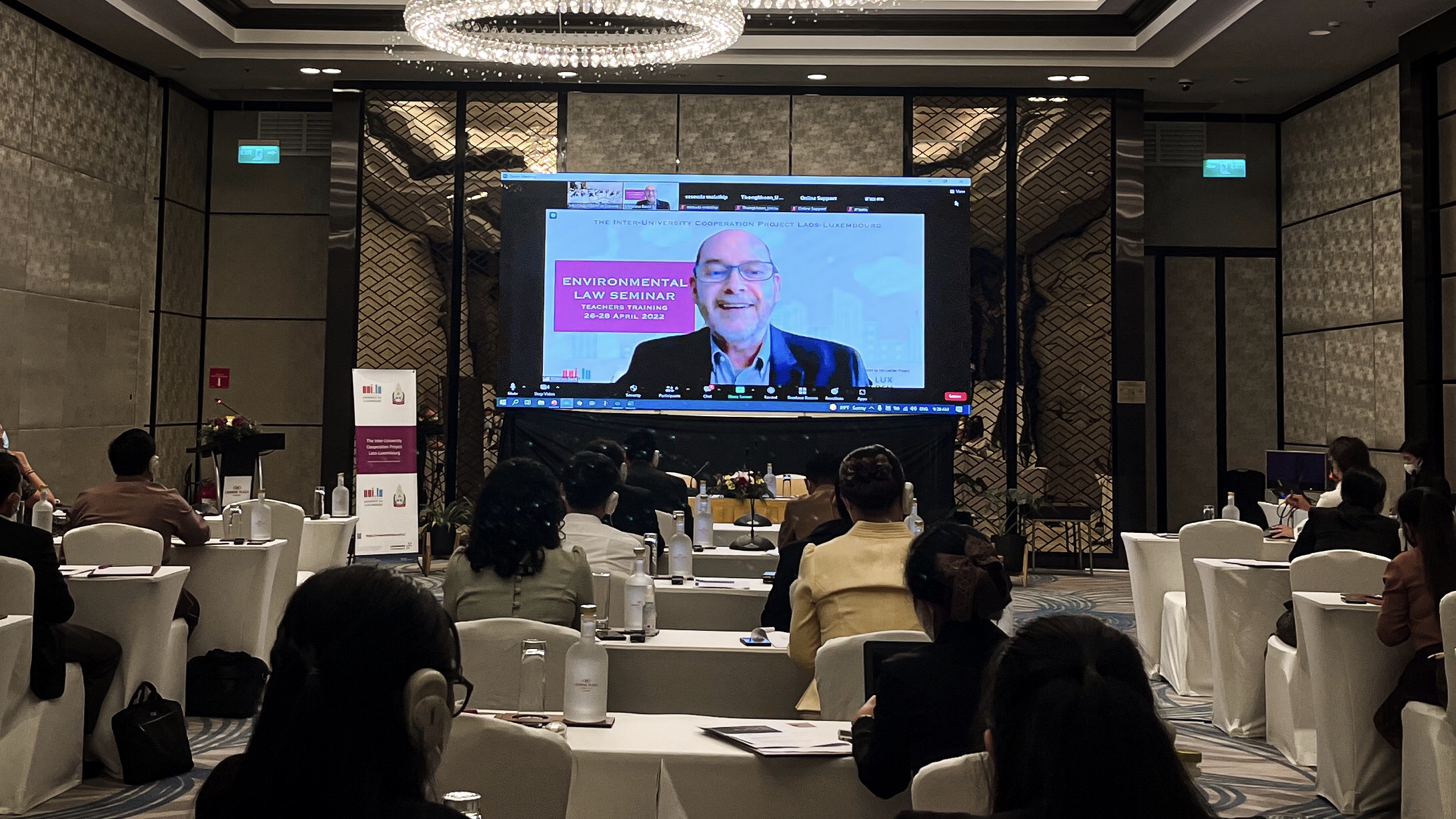In the framework of the Inter-University Cooperation Project, the University of Luxembourg is supporting the teaching Environmental Law in Lao PDR, an academic course essential for sustainable development and climate protection. A 3-day seminar on Environmental Law was organised on April 26-28 2022 in Vientiane in a hybrid format. For the first time this year, after a long period of restrictions due to Covid-19, participants could attend the event face-to-face, whereas the main speaker delivered the seminar via Zoom. The seminar focused on substantive law and teaching skills in Environmental Law to strengthen the skills of environment law lecturers from the Faculty of Law and Political Science, National University of Laos, the Faculty of Law and Administrative, Champassak University, and also National Institute of Justice.

This Environmental Law seminar was organised in collaboration with Mr. Matthew Baird, Director of the Asian Research Institute on Environmental Law (ARIEL) and coordinated by Dr. Perrine Simon (Uni.lu’s Liaison Officer). Matthew Baird is a lawyer specialised in the area of Environmental Law and an extensive experience in lecturers’ training in South East Asia having assisted ADB in developing a “Train the Trainers programme” for capacity development for Environmental Law academics in Asia, running in Cambodia, Thailand, Myanmar, and the Philippines.
Morning sessions were dedicated mostly to lectures, whereas afternoon sessions included group activities and discussions. Participants were provided with a syllabus including references for learning and teaching Environmental Law such as online courses, handouts, templates of syllabus, and were also granted access to a folder including essential electronic resources.

The first day of our seminar was dedicated to Introduction to Environmental Law and International Environmental Law and dealt with core environmental principles and international instruments, covering both hard and soft law.

In the afternoon, we welcomed via Zoom Dr David J. Devlaeminck, lecturer at the School of Law, Chongquing for an Introduction to Water Law, focusing specifically on the Watercourses Convention and the Mekong River basin. Then, Prof. Amanda Kennedy (Faculty of Law, Queensland University of Technology, and Co-chair of the IUNC AEL Teaching Committee), gave a presentation on “Teaching Environmental Law with Pedagogy and Practice”. The participants were introduced to different learning theories and to the Bloom’s Taxonomy, dealing with learning outcomes, assessment methods, and learning activities.

The second day of the seminar was devoted to teaching Environmental Impact Assessment (EIA) and Comparative Environmental Law; teaching Climate Change Law and Litigation; and International Environmental Law with Matthew Baird. Dr. Perrine Simon led group discussions on curriculum design in the afternoon, where participants had to work in groups and choose one topic related to Environmental Law, such as Climate Change, International Legal Regime, International Environmental Law, and Natural Resources Law, and design their own curriculum on environmental law, including the content, learning objectives, and lesson plan. The other discussion topic was on pedagogy, where participants had to look back at their lesson plan and propose the learning activities or exercises to run with the students.

On the last day of the seminar, we had the chance to welcome Associate Prof. Jonathan Liljeblad from the Australian National University via Zoom to discuss designing Environmental Law curriculum. Participants also experienced blended learning and asynchronous teaching by watching a recorded lecture on “Human Rights and the Environment” prepared by Ass. Pr. Liljeblad. The final session with Mr. Baird dealt with resolving environmental disputes (environmental courts), environmental crime, and environmental justice. In the afternoon, we had a group discussion on reflective practice with Dr. Perrine Simon. Lecturers highlighted as their main challenges the lack of resources and of teaching tools, together with difficulties in communicating and transferring knowledge to students. They praised the access to teaching material and learning about pedagogy acquired during this 3-day event.

The participation of the lecturers of the Faculty of Law and Administrative of Champassak University and of the National Institute of Justice was made possible with the financial support of the LuxDev Project LAO/031.

